The Nigeria purported amalgamation in 1914,[1] only about a decade after the defeat of the Sokoto Caliphate was a compromise of the Colonial rule founded on the spread of Islam. The affirmative Yes answer to Miller, Walter’s book, Have We Failed in Nigeria? reminds us of the weighty charges against the Colonial rule. The Colonial “Nigeria” is ‘a land where many material advances have been made, but where the intangible things of the Spirit, both personal and political are almost entirely absent.’[2] The failure of the Colonial government is about accepting ‘the full responsibility of taking on the government of 22 million people, the absence of any positive social philosophy and, in its place, the paralysing effect of a fossilised Indirect rule, which bolsters incompetent chiefs, leaves things as they are economically (where there is not a definite recession in individual prosperity), and in general is the enemy of true Home Rule.’ Indeed, the fossilised Indirect Rule was based on the representative village council that owes much to the Soviet.
The Colonial rule not only assisted a steady expansion of Islam, using the words of Professor Andrew Walls, the Colonial rule brought into being ‘a country where Arab Islamic rule was secured over peoples who were neither Arab nor Islamic. After independence, the cry “One nation, one faith” helped to consolidate that rule and to restrict or force out Christian missions.’[3] A major Islamic uprising in 1980 led by Maitatsine and his followers revealed an upsurge in violence and how “Death has come to reveal the faith” that led to several thousands deaths, kidnapping and banditry. In the same decade, the military ruler of Nigeria, General Ibrahim Babangida enrolled Nigeria in the Organisation of the Islamic Conference. This act indeed aggravated religious tensions and how “Death has come to reveal the faith” in Nigeria, particularly among the Christian community.[4] Since the return of democracy to Nigeria in 1999, Sharia was instituted as a main body of civil and criminal law in 9 Muslim-majority and in some parts of 3 Muslim-plurality states. Some Northern state governor instituted Sharia at the state level of government. The death, violence, banditry and kidnapping remains unabated till date. The 1991 attempted crusade by the late German evangelist Reinhard Bonnke led to a religious riots and death of many people.
The Islamist movement, Boko Haram shaped by ‘nihilistic terrorist ideology and murderous methods’ since 2009 continue to fight ‘an armed rebellion against the Nigerian military, sacking villages and towns and taking thousands of lives in battles and massacres against Christians, students and others deemed enemies of Islam.’ I wrote in one of my publications about the activities of Boko Haram insurgents in Northern Nigeria and its ideology that ‘is more or less what is called the terrorist narrative shaped by the writings of Islamists like the Egyptian militant Sayyid Qutb that ignores the authoritative mainstream views of the Islamic world. The Tehreek-e-Taliban Pakistan (TTP) have also crafted an ideology shaped by the terrorist narratives which is sharply at variance with Islam’s emphatic renunciation of aggression and violence. The argument is that Islam is under attack from the West and that the only way to unify the Islamic world which is divided is by eliminating all Western influence vehemently especially in Nigeria. The aim is to pursue with total commitment as a religious duty, hence, slaughtering of innocent people has become the order of the day’[5] in Nigeria. “Death has come to reveal the faith” in Nigeria as ‘the terrorist narrative does still seem to strike a chord in many Muslim communities and its does win recruits,’ coupled with the poverty ravaging most of our communities.
The Editorial of the Anglican and Episcopal History by Grant LeMarquand titled “Death has come to reveal the faith” goes beyond studies and stories of Sudan Anglicanism.[6] LeMarquand’s Editorial resonates with the Nigeria Pentecost Sunday massacre and backdrop of conflict and opposition from Islam. The Editorial revealed the effect of Colonial rule on the spread of Islam. Professor Andrew Walls in one of his books, said “Colonial rule did more for the spread of Islam than all the jihads and nowhere has this been more true than in Sudan.’[7] Since 2017 when Walls’ book was published, the conflict, the massacre, and opposition from Islam has been truer in Nigeria than in Sudan, Egypt and others places. Nigeria continue to suffer more appalling violence, banditry, kidnapping than most countries could bear almost unremittingly from 1953 until the present. The religious violence in Nigeria is dominated by the Boko Haram insurgency, which aims to establish an Islamic state in Nigeria. The appalling violence from the Islamic jihadists has seen a whole community uprooted from their land and their way of life and the farming that supported that way of life destroyed.
Beyond the effects of the Islamic-shaped Nigeria amalgamation, it is not in doubt that the Nigerian Church is in the midst of a dynamic revival. This is the Lord’s doing and it is marvellous in our eyes. For the Nigerian Church, a self-governing, self-propagating, self-financing, and bible based self-theologising, “Salvation has come to reveal the faith.” The amazing success of Christianity in modern Nigeria and its unmatched rise since Nigerian independence in 1960 is not without its sad failures. Gary Maxey and Peter Ozodo in their co-authorship of the book, The Seduction of the Nigerian Church provide a very helpful brilliant success of the Nigerian Church. According to them, ‘the excitement of Nigerian worship is unforgettable. The joy displayed by Nigerian believers is unmistakable. The level of commitment to the Church as well as the sheer number of those engaged is amazingly high. Open display of Christian witness is always impressive.’[8] Gary and Ozodo explained that the Nigerian ‘Christian growth is all the more impressive because it is against the backdrop of conflict and opposition from Islam, in a country that is split roughly 50/50 between two religions. In recent years Christian martyrdom has been higher in Nigeria than in any other nation in the world, including in the more widely publicised Middle East religious conflicts. Open Door USA reported that although Pakistan had more anti-Christian violence than Nigeria in 2016, the killing of Christians in Nigeria increased by 62 percent that year. Yet in spite of the persecution, the Nigerian Church continues to expand.’[9]
Since the emergence of Methodist Church Nigeria, the first modern denominational church in Nigeria in September 24th, 1842, the growth of Christianity in modern Nigeria has continued to accelerate steadily. The development of indigenous leadership continue to provide missional growth and direction in evangelism and missions. The ‘political independence from British rule largely coincided with the handing over of the church leadership to Nigerians and also with the outbreak of the greatest revival Nigeria has ever known.’[10] The challenge is that, the Islamic assaults on Nigeria’s Christian community remains unabated, “Death has come to reveal the faith.” Nigerian Christian community continue to suffer so much in order simply to live out their faith. The latest assaults on Nigeria’s Christian leaders and community says it all, “Death has come to reveal the faith.” The abduction of the Prelate, Methodist Church Nigeria, His Eminence Samuel Chukwuemeka Kanu Uche, his Chaplain, Very Rev Jeremiah Shittu and Methodist Bishop of Owerri, Rt Rev Dennis Mark shows that the ‘gun-toting kidnappers are running riot across the country without respect for rank or calling … dragging the clerics in their hallowed cassocks into the thick forest.’[11] Indeed, “Death has come to reveal the faith,” there is trouble in the land, ‘after threats and torture, they did not release their victims until N100 million was raised and delivered in jute (Ghana-must-go) bags.’
Beyond ‘the bounds of decency, the Nigerian kidnappers (a wide assortment of ruthless criminals ranging from Boko Haram/ISWAP terrorists and their offshoots, their allies, the bandit/terrorists, Fulani herders/militants across the North, “unknown gunmen” in the South-East, criminal gangs in the South-West and South-South, and individuals, including and copycats attracted by the rich takings and capitalising on ineffective law enforcement) ranked eighth in 1999 on the Global Kidnapping Hotspots chart moved to fifth place by 2014 after Mexico, India, Pakistan and Iraq.
The Nigeria Pentecost Church massacre orchestrated by the terrorist atrocity took place at St Francis Xavier Catholic Church, Owo, Ondo State, Southwest Nigeria on Pentecost Sunday June 5th 2022. This massacre, another “Death has come to reveal the faith” is about eliminating Christianity in Nigeria with more 40 death including children. Pentecost Sunday solemn commemoration was turned to a scene of death and the Church violated. Holy Mass was turned to horrific massacre by men of unknown origin, wielding guns at innocent Christian worshippers.
The Owo Pentecost Church gruesome murder, an affirmation of “Death has come to reveal the faith” points to a maturing Nigeria Church. As we grieve and condemn the evil meted on our brothers and sisters who have come to worship God, we declare the Lordship of Jesus Christ and still preach the sacredness of human lives. For a maturing Nigeria Church, we proclaim, “Salvation has come to reveal the faith.” As we call for prayer for the nation and most especially for the repose of the souls of those who died and for the quick recovery of those injured, we understand the ongoing age-old satanic schemes. Satan, our archenemy, is relentlessly out to steal, kill, and destroy. The result of the spiritual warfare at the heart of both individual and national affairs reveals “Death has come to reveal the faith.” Nigeria is not alone in this satanic deceptions but it is a warning to the Nigerian Church to take heed and not to be ‘blind-sided by the intellectual revolution that took place during the eighteenth-century Age of Reason and its aftermath.’[12] Nigeria is missionally crucial in the arena of global Christianity … We are unquestionably on the cutting edge of global Christian growth.’[13]
Pa Sydney. G. Elton who left his native country, England came to Nigeria in March 1937. He said, in the coming revival, “Africa is like a hand gun turned downward; Nigeria is the trigger…”[14] Until his passage in Ilesa in January 13, 1987, Pa Elton’s fifty years fruitful ministry in Nigeria concentrated on teaching prophetic truths and he was in partnership with the on-going Oke Oye 1930 Revival in Ilesa led by Apostle Joseph Ayodele Babalola. Among other prophecies of Pa Elton was that ‘Nigeria/Nigerians will be known for corruption worldwide but the tide will turn and Nigeria will also be known for righteousness worldwide. Many shall take hold of him that is a Nigerian, saying, we will go with you, for we have heard that God is with you.’ Indeed, the tide of corruption, the deadly allure of prosperity, and the “Death has come to reveal the faith” will turn to “Salvation has come to reveal the faith.” Nigeria will be known for righteousness and peace worldwide. ARISE AND PRAY.
[1] Miller, Walter R, Have We Failed in Nigeria? (London: Lutterworth Press, 1947), pp. 25-75
[2] Have We Failed in Nigeria? Walter R. Miller with a Foreword by A. G. Fraser 1947(London United Society for Christian Literature, Lutterworth 7½″ × 5″. 156 pp. Illus. 6s.) International Affairs, Volume 23, Issue 4, October 1947, Pages 600–601.
[3] Walls, Andrew, Crossing Cultural Frontiers: Studies in the History of World Christianity (Maryknoll, NY: Orbis Book, 2017), p. 89
[4] https://en.wikipedia.org/wiki/Religious_violence_in_Nigeria
[5] Okegbile Deji, https://thenationonlineng.net/beyond-boko-haram-countering-greedextremist-ideology/
[6] LeMarquand, Grant, Editorial: “Death has come to reveal the faith,” in Anglican and Episcopal History, Vol 71, No 2, Essay on the Anglican Church in the Sudan (June 2002), Historical Society of the Episcopal Church, pp. 147-149
[7] Walls, Crossing Cultural Frontiers:, p. 89
[8] Maxey, Gary, Ozodo, Peter, The Seduction of the Nigerian Church (Lagos: WATS Publications, 2017), pp. 35-44
[9] Maxey, Ozodo, The Seduction of the Nigerian Church, p. 36
[10] Maxey, Ozodo, The Seduction of the Nigerian Church, p. 38
[11] https://punchng.com/methodist-prelate-unravelling-the-kidnap-industry/
[12] Maxey, Ozodo, The Seduction of the Nigerian Church, pp. 72-77
[13] Maxey, Gary, Capturing a Lost Vision: Can Nigeria’s Greatest Revival Live Again? (Lagos: WATS Publications, 2016), p.12
[14] http://dejiokegbile.com/remembering-pa-elton/



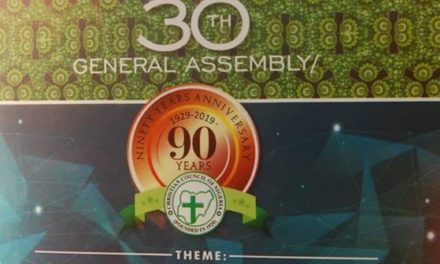

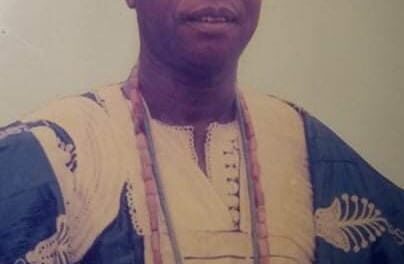
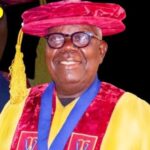

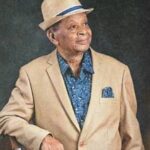

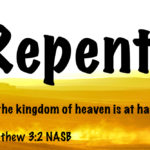
Eku ise Oluwa
Well done sir ✅
Thank you my dear pastor and friend
Well done sir. Good to meet you here. You were once in Lagos Government Chapel & was invited to minister in our Church (Anglican Cathedral) in Abeokuta. Your write up on 1 Tim.3:15 led me here. God will bless you and use you all the more in this generation. Amen
Good evening beloved. I remember very well. It was during Archbishop Akinde time. My regards to the family.